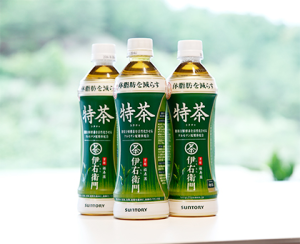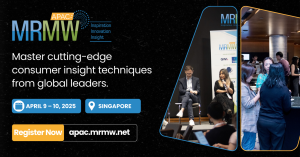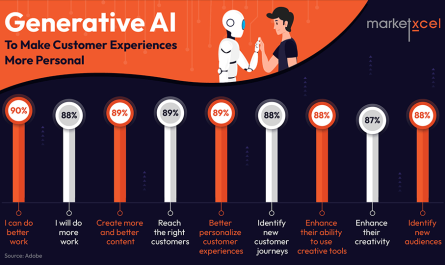Beyond Advertising: How Market Research Fuels Antifragile Brand Portfolios & Continuous Innovation in CPG
The White Paper by MMR
Building Antifragile Brand Portfolios through Continuous Innovation
Traditional market retention strategies in the CPG sector are no longer cutting it. Brands relying solely on advertising and pricing are seeing diminishing returns, while real innovation is mostly coming from smaller, more agile players. To stay ahead, brands need more than just stability—they need to be antifragile. This means adapting and taking advantage of market shifts rather than just surviving them. Achieving antifragility requires a Lean approach that goes beyond standard agile product development.
Beyond Advertising: Antifragile Portfolios
The CPG market is evolving fast, and the brands that win are the ones that don’t just hold their ground but actively evolve. While a few challengers have shaken up categories, global market leaders have remained mostly unchanged. Drawing from thinkers like Nassim Nicholas Taleb and Byron Sharp and methodologies like Eric Ries’ Lean Startup, we explore a new approach to continuous brand evolution.
A key part of this strategy is ongoing investment in consumer testing and portfolio iteration. By regularly launching new formulations and offerings that align with changing consumer needs, brands can refine their product mix, keeping consumers engaged and strengthening brand equity.
Understanding Antifragility in Business
Brand development exists on a spectrum: resilience → robustness → antifragility.
- Resilience: Maintaining market share through consistency despite economic downturns.
- Robustness: Withstanding market fluctuations using traditional advertising, pricing strategies, and shelf space.
- Antifragility: Thriving by evolving with market changes instead of just enduring them.
Antifragile brands don’t just survive challenges—they come out stronger. Just like how stress strengthens muscles, market volatility can make brands more competitive—if they embrace rapid testing and real-world trials to continuously refine their offerings. This approach shifts the focus from short-term tactics to long-term, sustainable growth.
Reframing Failure as Innovation Accounting
Seeing a product’s underperformance as a learning opportunity rather than a failure is crucial for antifragility. Eric Ries calls this innovation accounting—money spent on learning is never wasted, even if a product doesn’t succeed. When sales dip, brands should look at portfolio or product changes instead of defaulting to bigger ad budgets.
 A great example of this is Suntory’s Iyemon Tokucha, a functional tea in Japan. With health-conscious consumers on the rise, Suntory continuously refined the product through extensive testing and positioned it as an FOSHU (Food for Specified Health Uses) drink. This approach appealed to both intuitive and logical consumer decision-making. The result? A sustained competitive edge in Japan’s highly competitive beverage market. Instead of relying solely on marketing, Suntory kept optimizing the product itself, ensuring long-term success.
A great example of this is Suntory’s Iyemon Tokucha, a functional tea in Japan. With health-conscious consumers on the rise, Suntory continuously refined the product through extensive testing and positioned it as an FOSHU (Food for Specified Health Uses) drink. This approach appealed to both intuitive and logical consumer decision-making. The result? A sustained competitive edge in Japan’s highly competitive beverage market. Instead of relying solely on marketing, Suntory kept optimizing the product itself, ensuring long-term success.
Lean Startup Methodology: The Path to Antifragility
Building an antifragile brand requires a fast, data-driven approach across the portfolio. Eric Ries’ Lean Startup methodology offers a blueprint:
- Build: Develop and test the smallest viable version of a product as early as possible. Whether it’s an idea, concept, or first formulation, brands should test quickly to avoid expensive mistakes later.
- Measure: Collect consumer feedback from both controlled tests and real-world markets. Predictive models help, but real in-market feedback is invaluable.
- Learn: Use market data to refine and iterate. Instead of treating product launches as final versions, brands should see them as starting points for continuous improvement.
Antifragility in Action: Market Expansion Through Iteration
 A great example of antifragility in Asia is Calbee. Known for its core potato snacks, Calbee constantly experiments with new flavors, packaging, and formats to keep up with changing consumer trends. From wasabi-flavored chips in Japan to honey butter chips in Korea, Calbee uses limited-time launches to test the market. Successful iterations become permanent, ensuring the brand stays fresh and relevant.
A great example of antifragility in Asia is Calbee. Known for its core potato snacks, Calbee constantly experiments with new flavors, packaging, and formats to keep up with changing consumer trends. From wasabi-flavored chips in Japan to honey butter chips in Korea, Calbee uses limited-time launches to test the market. Successful iterations become permanent, ensuring the brand stays fresh and relevant.
Similarly, Alpro transitioned from dairy alternatives into plant-based desserts and high-protein options to match growing health trends. This iterative approach keeps brands dynamic and consumer-focused.
Strategic Partnerships: Scaling Innovation
One of the biggest challenges in innovation is justifying the investment. But antifragility shows that repeated experimentation is key to finding successful products. Even if only one in ten ideas works, the payoff can be huge. Instead of acquiring successful brands at premium prices—like Ferrero’s acquisition of Fulfil—companies can build their own winning products through structured innovation programs.
Partnering with technology firms can speed up testing, improve analytics, and make the whole process more efficient. Nestlé’s R&D Accelerator is a great example, providing startups and internal teams with the tools to prototype and refine products quickly.
The Future of Antifragile Brands
In today’s fast-changing market, the brands that prioritize antifragility over just resilience will come out on top. This means:
- Quickly responding to trends with new product variations.
- Continuously testing and validating product-market fit.
- Using strategic tech partnerships to fast-track innovation.
- Treating failure as a learning opportunity, not a setback.
By embedding antifragility into product development and brand strategy, companies can build portfolios that don’t just survive market shifts—they thrive because of them.
For more information on the discovery work from Product Hub and other case studies, please click here.
Join the leading Market Research conference, MRMW APAC, on April 9–10, 2025, in Singapore.
Now in its 17th year, this leading event brings together top brands, agencies, and tech disruptors to explore the latest trends shaping insights and market research.
This year’s conference features cutting-edge research techniques, from planning to implementation, plus expert panels, 1-2-1 meetings, and keynote presentations from industry leaders at Reckitt, HP, Coca-Cola, Unilever, IBM, Dell, Castlery, and more.
Don’t miss this chance to gain actionable insights and connect with top innovators! Check ticket availability here.










 by
by 


